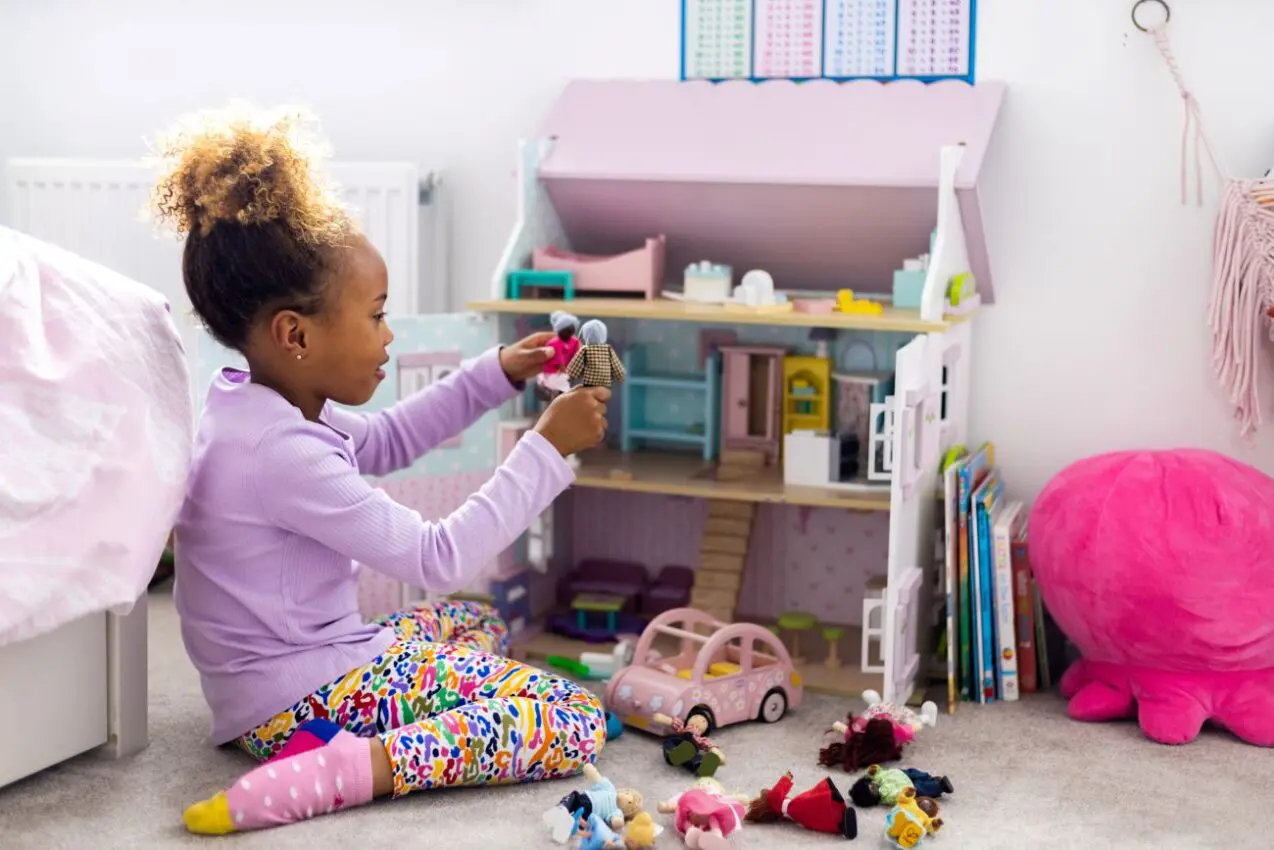For many American families, having kids need their own bedrooms is seen as the ideal setup. However, some experts argue that separate bedrooms for children may not always be best for healthy child development. Let's look at both sides of this debate.
Over the past few decades, the notion that kids need their own bedroom has gone from rare to the expected norm. Census data shows that the average number of bedrooms per child in U.S. homes doubled from just 0.7 in 1960 to 1.1 in 2000 as home sizes grew and families had fewer kids. Now, over half of all households with children have enough separate bedrooms for every child to claim their own private space if desired by parents.
Many parents feel strongly that kids need their own bedroom to foster a sense of independence and privacy as they grow. Having a personal, private bedroom under their control to decorate as they wish is seen as valuable practice for the autonomy and self-expression kids will want as adults. Parents believe letting children make choices over their music, belongings, and overall bedroom environment helps nurture their unique identity development. But Do Solo Bedrooms Benefit Child Development?
However, many psychologists who study child development bedrooms say there is limited solid evidence that a solo bedroom benefits a child's overall growth and well-being more than other living setups. The intense modern desire for kids to have their own bedroom seems more connected to broader American cultural values around individualism that parents hope to instill in their kids. However, simply giving a child their own room does not automatically make them truly independent, as parents still provide money, set rules, and maintain oversight over the space.
While private bedrooms allow alone time, that isolation at a young age can potentially undermine other key developmental needs around socialization skills. Kids separated for long stretches, often just using digital devices alone in their bedrooms, miss out on crucial practices with interpersonal interaction, communication, and negotiating shared living spaces. Many cultures embrace the norm of shared bedrooms to help children learn important skills like cooperation, compromise, and resolving conflicts that they'll need as adults.
As families have prioritized granting kids more bedroom privacy and personal space in recent decades, there has also been a societal shift towards increased parental supervision, overriding children's independent mobility and freedoms outside the home. Many parents today don't allow free outdoor rein due to safety concerns and fears of being judged by others. The private bedroom becomes one of the only spaces where kids can claim autonomy, which may give it an unhealthy amount of importance.
Less sustained privacy could deprive kids of a sense of kinship, belonging, and experiencing community that comes from sharing living spaces at times. Some experts warn that teens are reporting increased loneliness compared to past generations, potentially stemming from the isolation of intensely private, protracted bedroom use during critical years for building identity and practicing relationships. As a result, many young adults need help sharing spaces like dorms or apartment living due to a lack of earlier experience working through conflicts and compromises in shared childhood bedrooms.
There are potential advantages to children routinely experiencing some level of shared bedroom arrangement for at least a portion of their childhood. Having to navigate negotiations over personal space and noise occasionally can nurture the development of crucial lifelong skills like empathy, problem-solving, and considering the perspectives of others. An ideal setup may also look different as peer socialization grows more vital for preteens and teenagers than for young children's needs.
While every family's situation is unique based on factors like home size and kids' ages, the intense cultural emphasis on the assumption that kids universally need and benefit most from having their own private bedroom may be misguided. As with many parenting choices, aiming for an age-appropriate balance between personal spaces, communal spaces, responsibilities, and social interactions is likely prudent as a child's developmental needs continuously evolve over time.
Overall, the heated debate around whether kids definitively need their own bedrooms shows there are reasonable arguments on both sides that families could benefit from considering objectively through a development-focused lens. What is most "normal" should not be automatically equated with what is ideal, as kids' fundamental needs span both self-actualization and community integration in a balanced way over different childhood stages.
Rather than adhering strictly to cultural norms, parents could serve their kids best by remaining open-minded, attuned to their specific child's changing needs, and ready to adapt living situations accordingly for optimal healthy growth through each distinct life phase.

 Cats can get sick with bird flu. Here's how to protect them
Cats can get sick with bird flu. Here's how to protect them
 An uneasy calm settles over Syrian city of Homs after outbreak of sectarian violence
An uneasy calm settles over Syrian city of Homs after outbreak of sectarian violence
 LL Bean agrees to injunction to end Skechers shoe lawsuit
LL Bean agrees to injunction to end Skechers shoe lawsuit
 WHO chief says he was at Yemen airport which Israeli strikes targeted
WHO chief says he was at Yemen airport which Israeli strikes targeted
 Organizers say two sailors have died in Sydney to Hobart yacht race amid wild weather conditions
Organizers say two sailors have died in Sydney to Hobart yacht race amid wild weather conditions
 Column-Why US Congress restored Social Security benefits for public-sector retirees: Mark Miller
Column-Why US Congress restored Social Security benefits for public-sector retirees: Mark Miller
 Peru declares environmental emergency after oil spill
Peru declares environmental emergency after oil spill
 Holiday travelers are facing flight cancellations as severe storms roll into the South
Holiday travelers are facing flight cancellations as severe storms roll into the South
 Miami Hurricanes men’s head basketball coach Jim Larrañaga steps down, cites NIL: ‘I’m exhausted’
Miami Hurricanes men’s head basketball coach Jim Larrañaga steps down, cites NIL: ‘I’m exhausted’
 Kids Need Their Own Bedroom
Kids Need Their Own Bedroom






